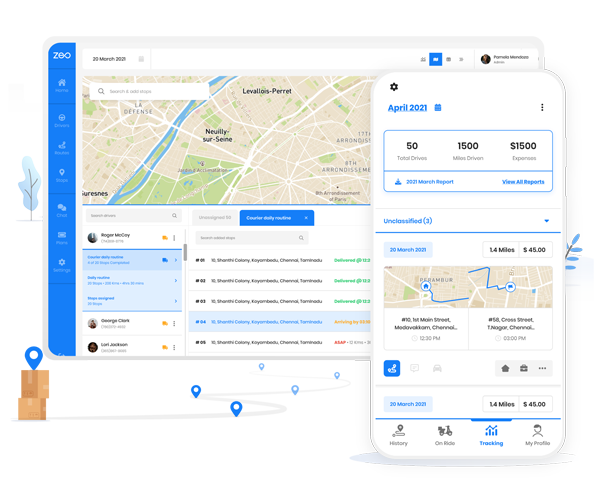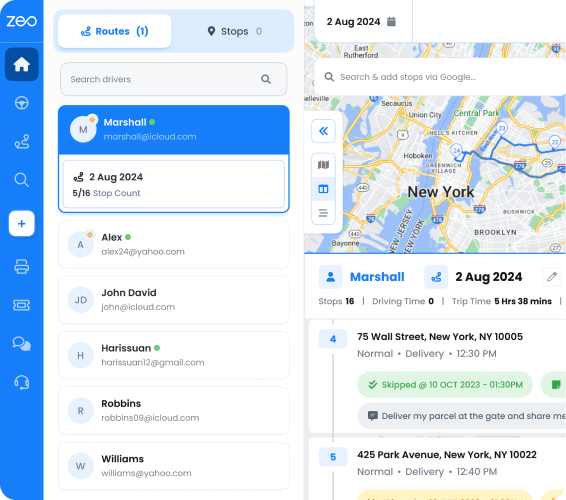Updated on: July 21, 2025
Since the pandemic, online purchases have surged due to remote work, leading to a shift towards e-commerce. Buyers now require brand support throughout the buying process, necessitating real-time communication to meet increasing customer demands.
Real-time communication is crucial for businesses to stay competitive in the increasingly complex and quick-paced supply chain, particularly in the delivery and fulfillment sectors, as it allows for immediate updates and insights. In today’s blog post we will discuss the importance of real-time communication for delivery and fulfillment.
Challenges in Delivery Businesses Due to Lack of Communication
Real-time communication is crucial for customers to gain visibility into the entire supply chain process. Traditional delivery businesses provide long tracking numbers, inaccurate delivery dates, and vague shipment locations, leading to frustration and impacting brand loyalty.
Live tracking capabilities delay businesses from gaining comprehensive visibility, leading to inefficiencies in supply chain planning, integration, and execution, resulting in time and resource wastage, lower ROI, and obstructed business growth.
Benefits of Real-Time Communication in Delivery Business
Real-time communication is crucial for logistics or fleet management companies to efficiently allocate and manage resources in every process, from packaging to delivery, ensuring effective business utilization.
- Increases Productivity: Live fleet tracking aids in identifying supply chain problem points, and maintaining accurate mileage and job arrival/departure logs without relying on drivers. It also helps monitor drivers’ optimal performance and prevents false time claims by clocking inaccurate times.
- Improves Customer Satisfaction: Tracking systems enhance customer satisfaction, response times, and productivity. GPS-based fleet tracking decreases safety incidents and improves satisfaction levels for companies implementing these systems.
- Reduces Fuel Costs: Real-time communication is crucial for fleet businesses to manage high operating expenses, such as fuel and labor costs. It reduces idle time and provides real-time alerts on vehicle status. Fleet tracking also monitors vehicle speed, identifying drivers exceeding speed limits or frequent stops, reducing fuel consumption.
Why Businesses in the Delivery and Fulfillment Landscape Must Invest in Real-Time Communication
Real-time communication is crucial for businesses in the delivery and fulfillment sector for operational efficiency, customer satisfaction, and competitiveness in a fast-paced market.

increase fuel savings
Hassle Free Deliveries & Pickups!
Optimize routes with our algorithm, reducing travel time and costs efficiently.
Get Started for Free
- Meeting Customer Expectations
Customers now demand complete order visibility, including shipping, transit, and arrival times. Real-time communication offers instant updates, enhancing customer satisfaction, reducing anxiety, and building trust by providing real-time information at every stage of the order process. This critical aspect of business operations is essential for meeting these expectations. - Improving Operational Efficiency
Real-time communication is crucial for large-scale delivery operations, enabling teams to adapt to changes like traffic rerouting, driver reallocation, and updating processes. This increased flexibility and responsiveness optimizes resources, reduces fuel consumption, and ensures on-time deliveries, making it a critical aspect of business management.
- Enhancing Last-Mile Delivery
Real-time communication with drivers in the last mile of the delivery process is crucial for businesses to provide accurate ETAs and adjust routes based on traffic and delivery priorities. This results in quicker, more efficient deliveries, reducing road time, lowering costs, and enhancing customer experience.
- Real-Time Fleet and Driver Management
Efficient fleet management is crucial for profitability in large delivery networks. Real-time communication allows dispatchers to track drivers, monitor performance, and reroute them in case of delays or emergencies. This ensures efficient routes and delivery schedules and reduces downtime, optimizing resources and reducing downtime.
- Data-Driven Decision Making
Real-time communication tools offer businesses valuable data on delivery times, driver performance, and customer interactions. This data enables continuous improvement and optimization of processes, which is critical for making delivery operations more efficient and cost-effective over time.
Read More: How Route Optimization Can Prevent Retail Supply Chain Delivery Disruptions
Conclusion
Real-time communication is now necessary for businesses in the delivery and fulfillment industry, as it reduces costs, improves delivery success rates, and builds customer loyalty.
Zeo Route Planner is crucial for businesses in the delivery and fulfillment sector, as it offers a comprehensive solution to modern logistics challenges, enhancing customer experience, streamlining operations, and driving business growth.
If you want to improve the delivery operations, contact Zeo’s specialists and have a free demo!

Are you a fleet owner?
Want to manage your drivers and deliveries easily?
Grow your business effortlessly with Zeo Routes Planner – optimize routes and manage multiple drivers with ease.

increase fuel savings
Save $200 on fuel, Monthly!
Optimize routes with our algorithm, reducing travel time and costs efficiently.
Get Started for Free




















